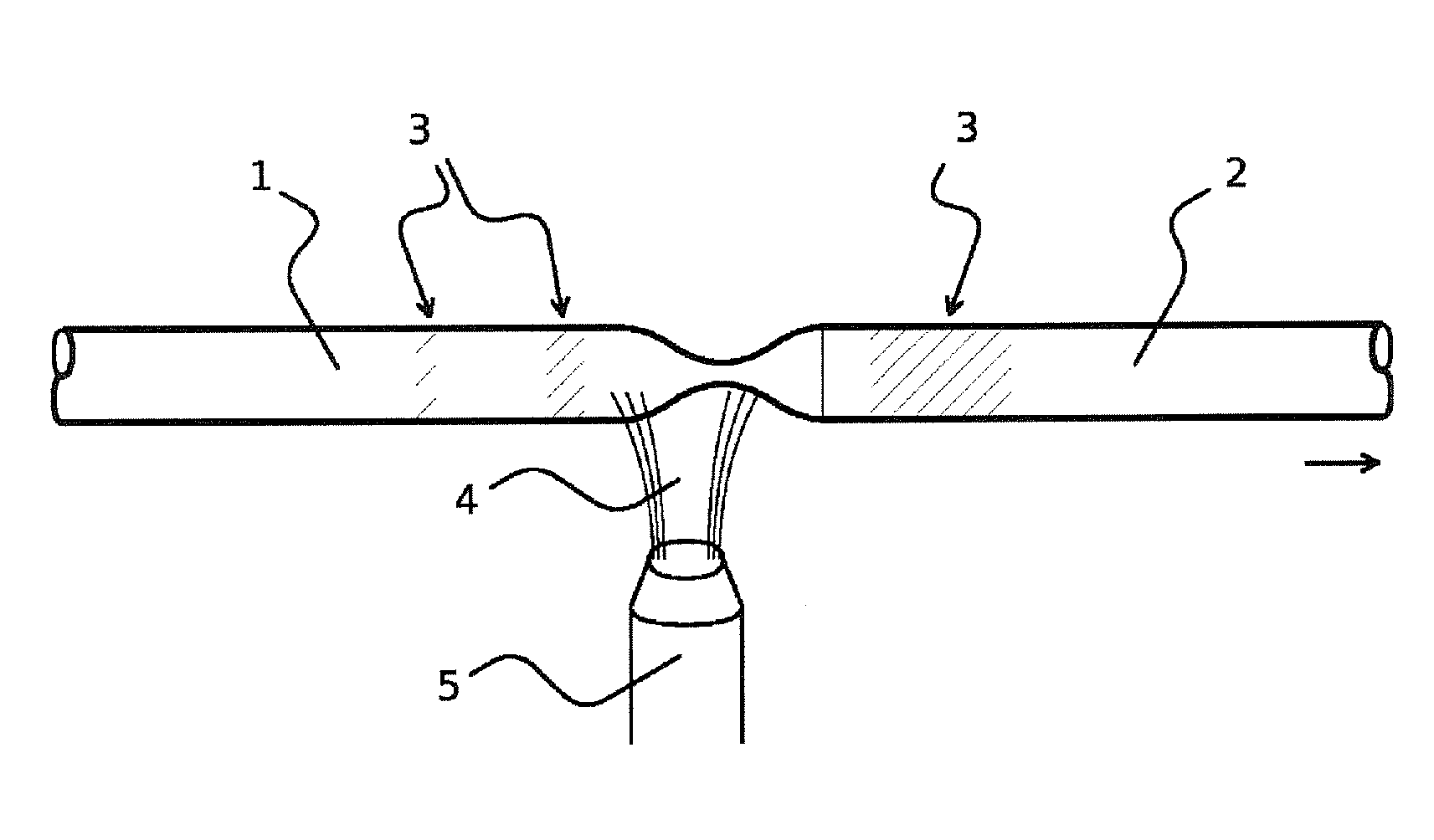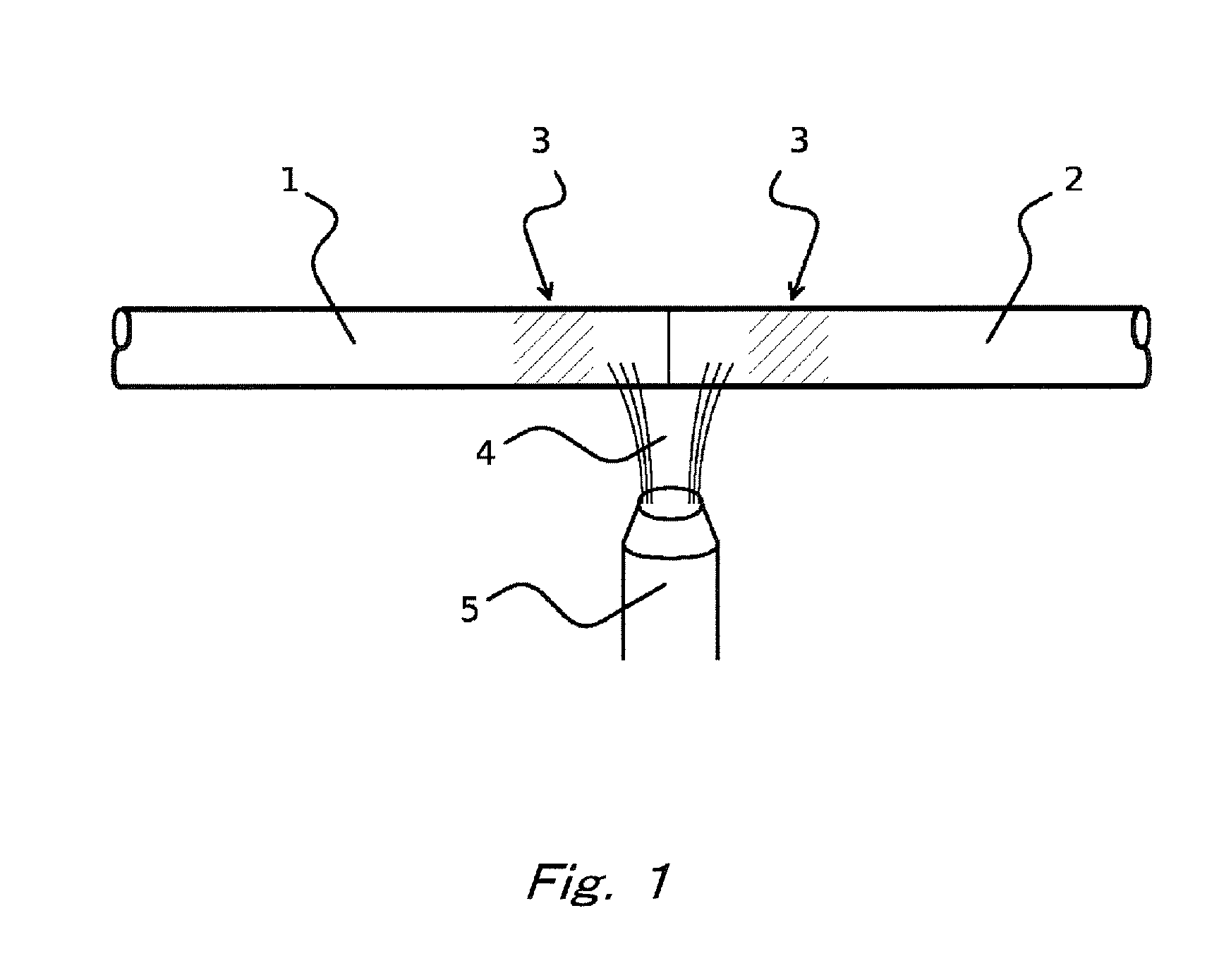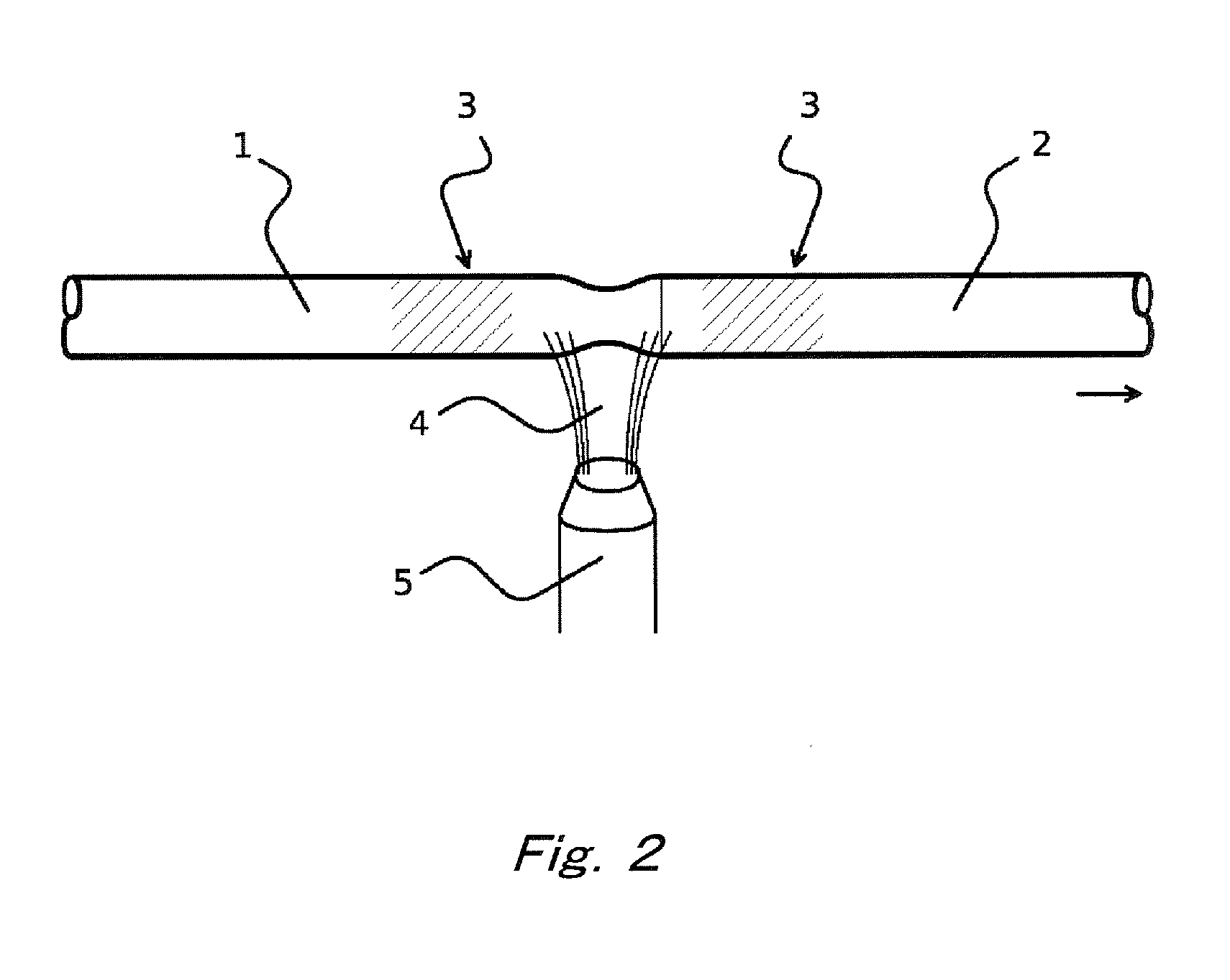Optical fiber base material machining method
- Summary
- Abstract
- Description
- Claims
- Application Information
AI Technical Summary
Benefits of technology
Problems solved by technology
Method used
Image
Examples
first manufacturing example
[0048]Spindle-shaped portions were formed in a plurality of the optical fiber base materials 1 by using a glass lathe that horizontally grips the optical fiber base materials 1 with a hydrogen flame burner, having an oxygen nozzle that discharges oxygen gas as a combustion-assisting gas, as a heating source. The average outer diameter of the optical fiber base materials 1 set horizontally on the glass lathe was φ 85 mm.
[0049]First, as the preheating, the burner 5 injected and blew the burner flame 4 from the connection portion between the optical fiber base material 1 and the dummy rod 2 toward the start position which was separated by 20 mm from the optical fiber base material 1 side. Accordingly, this position of the optical fiber base material 1 was heated and softened.
[0050]While the heated portion of the optical fiber base material 1 was in a softened state, the softened portion of the optical fiber base material 1 was elongated by increasing the space of the chuck gripping the...
second manufacturing example
[0054]The drawing to form the spindle-shaped portions was performed on the other 100 optical fiber base materials 1 using the same glass lathe as the first manufacturing example. Here, the average outer diameter of the optical fiber base materials 1 drawn was φ 120 mm.
[0055]First, as the preheating, the burner 5 injected and blew the burner flame 4 from the connection portion between the optical fiber base material 1 and the dummy rod 2 toward the start position that is separated by 30 mm from the optical fiber base material 1 side. In this way, this position of the optical fiber base material 1 was heated and softened.
[0056]While the heated portion of the optical fiber base material 1 was in a softened state, the space of the chuck gripping the optical fiber base material 1 and the dummy rod 2 was increased, and the softened portion of the optical fiber base material 1 was elongated. The operation of the chuck was stopped when the minimum diameter of the diameter-reduced portion of...
PUM
| Property | Measurement | Unit |
|---|---|---|
| Diameter | aaaaa | aaaaa |
| Speed | aaaaa | aaaaa |
Abstract
Description
Claims
Application Information
 Login to View More
Login to View More - R&D
- Intellectual Property
- Life Sciences
- Materials
- Tech Scout
- Unparalleled Data Quality
- Higher Quality Content
- 60% Fewer Hallucinations
Browse by: Latest US Patents, China's latest patents, Technical Efficacy Thesaurus, Application Domain, Technology Topic, Popular Technical Reports.
© 2025 PatSnap. All rights reserved.Legal|Privacy policy|Modern Slavery Act Transparency Statement|Sitemap|About US| Contact US: help@patsnap.com



